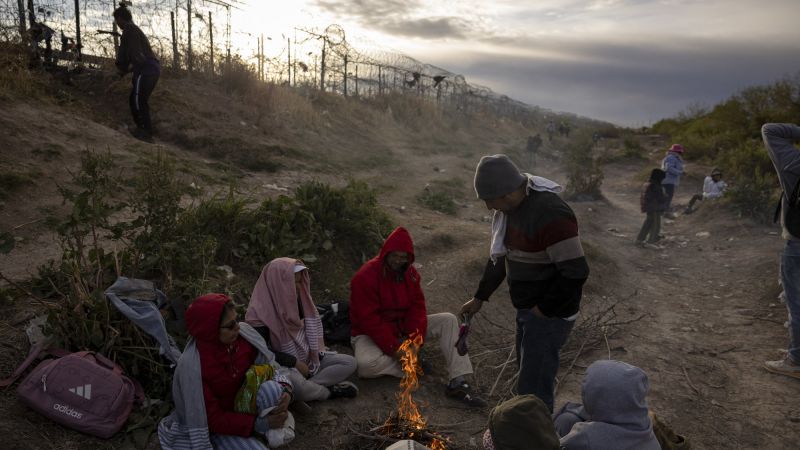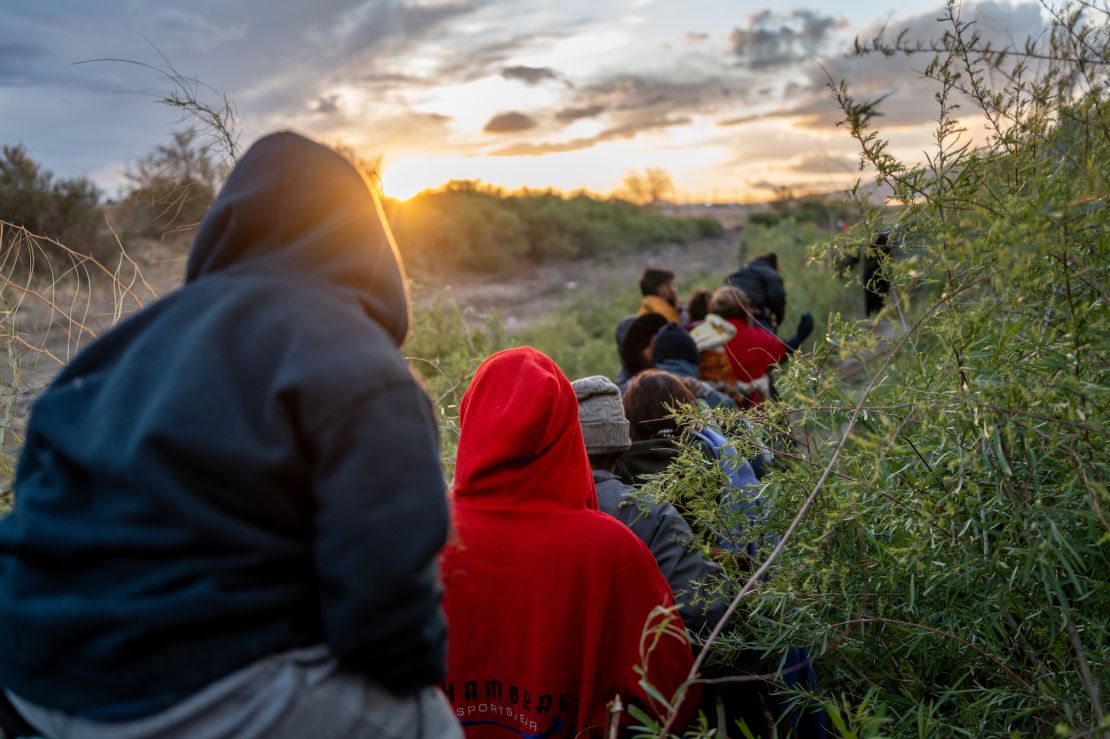
CNN
—
A small corner of Venezuela is slowly spreading along 77th Street in Bogota, Colombia’s capital.
Municipal maps officially refer to this neighborhood as: Yunior II (“Unification”)But to many of its residents it is known as Hugo Chavez neighborhoodafter the late Venezuelan president.
Many Venezuelans who fled their country over the past decade or more now call Bogotá home. The city is filled with informal communities where migrants come together to help each other integrate and combat depression and homesickness.
Maria Alvarez is one of those migrants. A 27-year-old single mother from Valencia, Maria left Venezuela in 2017 when her son Gabriel was just a year old. They haven’t been back since. Gabriel only knows his grandparents from photos on his mother’s phone and occasional video calls.
“Everyone has left… I have family in Brazil, in the United States, here in Colombia, Ecuador and Chile as well. We are all abroad: my uncles, aunts, cousins… Only my mom, dad and one of my brothers are left in Venezuela,” Alvarez told CNN.
Most of those seven million migrants left Venezuela after 2014, according to the United Nations, amid an economic and political crisis caused by the collapse in the price of oil — one of Venezuela’s main exports — along with chronic corruption and mismanagement by government officials.
Nearly two million of them have obtained work permits to work in Colombia, where life is going well for Alvarez and many like her. After the Covid pandemic, she helped set up a foundation in University 2 To provide professional lessons and psychological counseling to Venezuelans and Colombians. She now earns her living through her nail care business and has met a new partner.
Still, she feels drawn to Venezuela. “I just dream of going back home and building a life there,” she told CNN, crying. “Colombia was good, I feel welcome here, but I long to go back.”

Elections and a credible opposition
But as Nicolás Maduro’s authoritarian government consolidated power, dreams of return remained just that—dreams—for years. Until now.
This month, for the first time in a decade, Venezuela will hold elections in which opposition candidate Edmundo Gonzalez, who has a credible chance of winning, will compete with Maduro’s government.
In October of last year, Maduro formally pledged to hold free and fair elections in 2024 at the end of a long and secretive negotiation process with the US State Department.
But that pledge has been at least partially jeopardized by a new spat between Washington and Caracas: Leading opposition candidate Maria Corina Machado was barred from running earlier this year, as was her replacement, Corina Jorres. The Venezuelan government has accused the White House of failing to lift all economic sanctions on government officials, and in recent weeks opposition supporters and members of Machado’s team have been arrested.
However, many experts believe the opposition has a real chance of removing Maduro from power by the elections scheduled for July 28.
Recent polls show Gonzalez leading Maduro by more than 20 percentage points, and for the first time in years, election observers from the Carter Center and the United Nations have been invited to monitor the elections.
Such progress would make González the frontrunner in almost any other democracy. But in Venezuela, the government is used to clinging to power. Critics have long accused it of rigging votes and silencing dissent.
Opposition protests were repeatedly suppressed in 2014, 2017 and 2019, and hundreds of opposition leaders were arrested or exiled.
However, for many people, this year looks different.
“I personally find it hard to believe that Maduro would just give up power that easily,” said Laura Deeb, a Venezuela expert at the Washington Office on Latin America.
“However, you know, if there is massive engagement with international oversight, and of course with pressure from within the government itself and international pressure… that could create some avenues,” she told CNN.
Alvarez and many other migrants in Bogotá see it the same way: “Maduro can only win the election if he steals it. But if there is a new government, I will come back the same day. Not just me, hundreds and thousands… There won’t be enough planes to get everyone home,” says Endel González, a 54-year-old from Maracaibo who has been delivering food in Bogotá for the past five years.

The fate of immigrants like Alvarez and millions more like her is what makes this election so closely watched.
Before the pandemic, it was common for Venezuelan migrants to seek opportunities in neighboring countries, but in the past three years, more than half a million people have left the country. They headed to the southern border of the United States, and moved directly overland from Colombia to Panama and Central America, all the way to northern Mexico.
Venezuelans were the second-largest group of migrants apprehended by U.S. Customs and Border Patrol in 2023, totaling more than 260,000, a fivefold increase. Since 2020, when the number of migrants was less than 50,000, putting pressure on the White House to stop the flow.
With the Democratic administration facing an uncertain election in November and immigration policies on the line, this month’s contest in Caracas could have dire consequences for U.S. President Joe Biden.
Most experts who spoke to CNN believe that if Gonzalez wins, many migrants will decide to return to Venezuela — but if Maduro holds on to power, more will be tempted to head to the US border, whether for political or practical reasons.
In the early years of Venezuela’s migration boom, several Latin American countries offered emergency permits and ad hoc policies to migrants from the country, but now many of these countries are erecting barriers to deter the free movement of people.
For example, Colombia has stopped issuing documents to recently arrived migrants, while newly elected Panamanian President José Raúl Molino has proposed building a fence around the forests that connect his country to Colombia.
Deeb estimates that up to two million additional migrants could move by next year.

The Biden administration has been instrumental in bringing this moment to a close. Maduro’s agreement to free and fair elections came only after the United States partially lifted oil sanctions and resumed flights returning undocumented migrants to Caracas in October.
Direct negotiations between Maduro and the US State Department appear to have stalled, although Maduro announced last week that his chief negotiator, Jorge Rodriguez, had met with US officials to resume talks.
Washington openly supports Gonzalez, apparently because it believes that a transition to democracy in Venezuela would not only help negotiations on energy and migration policy, but also help shift Caracas away from its ideological alliances with the likes of China, Russia and Iran.
But as both countries head to the polls this year, it may be what voters decide in November, not July, that really makes the difference.
“If the Biden administration remains in power, I think the (bilateral) negotiations will continue,” Deeb said.
“Now, if there is a Trump administration, it will likely be limited to running business…without much regard for what happens with democracy and human rights.”

“Travel specialist. Typical social media scholar. Friend of animals everywhere. Freelance zombie ninja. Twitter buff.”





More Stories
Taiwan is preparing to face strong Typhoon Kung-ri
Israel orders residents of Baalbek, eastern Lebanon, to evacuate
Zelensky: North Korean forces are pushing the war with Russia “beyond the borders”